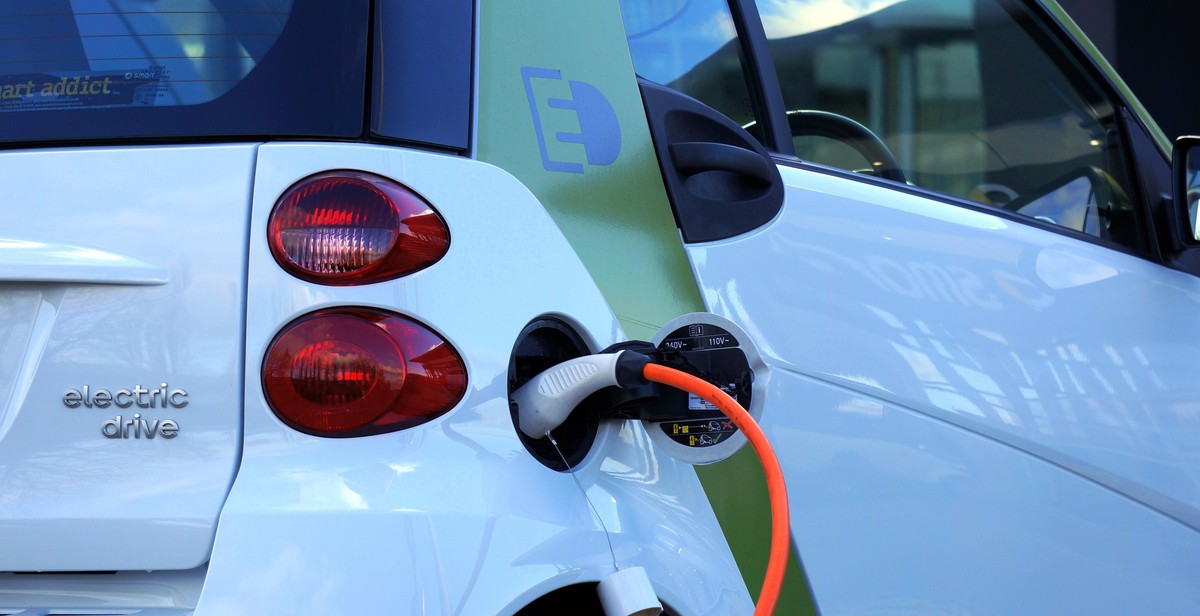How to Maintain and Extend the Lifespan of Your Car’s Battery
Your car’s battery is an essential component that powers all the electrical systems in your vehicle. It provides the necessary energy to start your engine, operate lights, power windows, and other electronic devices. Therefore, it is crucial to keep your car’s battery in good condition to avoid unexpected breakdowns and costly repairs.
Why Is Maintaining Your Car’s Battery Important?
Car batteries have a limited lifespan and can fail unexpectedly, leaving you stranded and in need of a jump start or a replacement. Regular maintenance is essential to keep your battery in good condition and extend its lifespan. Neglecting your battery can lead to a host of problems, including:
- Difficulty starting your engine
- Dimming headlights and interior lights
- Electrical problems with other systems in your vehicle
- Decreased fuel efficiency
- Reduced battery life
By following a few simple maintenance tips, you can keep your car’s battery healthy and extend its lifespan, saving you time and money in the long run.

Understanding Your Car’s Battery
Car batteries are an essential component of your vehicle’s electrical system. They provide the power needed to start your car and keep it running. Understanding the types of car batteries and how they work is crucial to maintaining and extending the lifespan of your car’s battery.
Types of Car Batteries
There are two main types of car batteries: lead-acid batteries and lithium-ion batteries.
- Lead-Acid Batteries: These are the most common type of car battery and have been used for decades. They are affordable and reliable, but they require regular maintenance.
- Lithium-Ion Batteries: These batteries are becoming more common in newer vehicles. They are lightweight, have a longer lifespan, and require less maintenance than lead-acid batteries. However, they are more expensive.
How a Car Battery Works
A car battery works by converting chemical energy into electrical energy. The battery contains six cells, each with lead plates and an electrolyte solution. When the battery is charged, the lead plates react with the electrolyte solution, producing a chemical reaction that creates electrical energy.
When you start your car, the battery sends a burst of electrical energy to the starter motor, which turns the engine. The alternator then takes over and provides power to the car’s electrical system while also recharging the battery.
It’s essential to keep your car’s battery in good condition to ensure reliable starting and prevent breakdowns. Regular maintenance, such as checking the battery terminals for corrosion and keeping the battery charged, can help extend the lifespan of your car’s battery.
| Lead-Acid Batteries | Lithium-Ion Batteries |
|---|---|
| Require regular maintenance | Require less maintenance |
| Affordable and reliable | More expensive |
| Heavier than lithium-ion batteries | Lightweight |
Overall, understanding your car’s battery and its maintenance needs can help you avoid costly breakdowns and extend the lifespan of your battery.

Factors That Affect Your Car’s Battery Life
Car batteries are essential components of your vehicle’s electrical system. They provide the necessary power to start the engine and keep the vehicle running. However, like all batteries, they have a limited lifespan. Several factors can affect the lifespan of your car’s battery, including:
Temperature
The temperature of your car’s environment plays a crucial role in the lifespan of your car’s battery. Extreme temperatures can cause the battery to deteriorate faster, reducing its overall lifespan. High temperatures can cause the battery’s fluid to evaporate, leading to damage to the internal components. On the other hand, extremely low temperatures can reduce the battery’s ability to provide power to the engine, leading to a shorter lifespan. It is, therefore, crucial to avoid exposing your car’s battery to extreme temperatures.
Driving Habits
Your driving habits can also affect the lifespan of your car’s battery. Short trips, for instance, can lead to a shorter lifespan as the battery does not get enough time to recharge fully. Similarly, frequent starts and stops can also reduce the battery’s lifespan. It is, therefore, important to ensure that you drive for longer periods, allowing the battery to recharge fully.
Battery Age
The age of your car’s battery is also a critical factor that affects its lifespan. Most car batteries have a lifespan of between three to five years. After this period, the battery’s ability to hold a charge reduces significantly, leading to a shorter lifespan. It is, therefore, crucial to replace your car’s battery after this period to avoid unexpected breakdowns.
Understanding the factors that affect the lifespan of your car’s battery can help you take the necessary steps to maintain and extend its lifespan. By avoiding extreme temperatures, driving for longer periods, and replacing your battery when necessary, you can ensure that your car’s battery lasts longer, reducing the risk of unexpected breakdowns.

Signs of a Failing Battery
Car batteries are essential to power up the engine and other electrical components of your vehicle. However, over time, they may fail due to several reasons. Here are some of the signs you should look out for to determine if your car battery is failing:
Slow Engine Crank
If you notice that your engine takes longer to start, or if it cranks slowly, it could be a sign of a failing battery. This is because the battery is unable to supply enough power to start the engine. It could be due to a weak battery, a discharged battery, or corroded terminals that prevent the battery from delivering enough power to the starter.
Dashboard Warning Light
Most modern cars have a dashboard warning light that indicates if there is an issue with the battery or charging system. If this warning light appears, it could be a sign of a failing battery. It could also be due to a faulty alternator, which is responsible for charging the battery when the engine is running.
Corrosion on Battery Terminals
Corrosion on the battery terminals is a common sign of a failing battery. The buildup of corrosion can prevent the battery from delivering enough power to the starter, which can cause issues with starting the engine. It can also lead to electrical problems, such as dimming headlights or malfunctioning electrical components.
It is important to address these signs of a failing battery as soon as possible to avoid more significant issues with your vehicle. Regular maintenance and inspection of your car’s battery can help extend its lifespan and prevent unexpected breakdowns.

Tips for Extending Your Car Battery Life
Car batteries are an essential component of your vehicle, and they require proper maintenance to ensure that they last as long as possible. Here are some tips to help you extend the lifespan of your car’s battery:
Regular Maintenance
- Check battery cables and terminals: Make sure that the battery cables and terminals are clean and free from corrosion. If you notice any build-up, use a wire brush to remove it.
- Test the battery: Have your battery tested regularly to ensure that it’s holding a charge and functioning properly. Most auto parts stores offer free battery testing.
- Keep it clean: Dirt and debris can accumulate on your battery, which can cause it to discharge more quickly. Clean your battery regularly with a damp cloth to remove any dirt or debris.
Driving Habits
How you drive your car can also affect the lifespan of your battery. Here are some tips to help you extend your battery’s life:
- Drive your car regularly: If you don’t use your car regularly, the battery can become discharged, which can shorten its lifespan. Take your car for a drive at least once a week to keep the battery charged.
- Avoid short trips: Short trips don’t give your battery enough time to fully charge. If possible, try to combine short trips into one longer trip.
- Avoid using electronics when the engine is off: Using electronics like the radio or headlights when the engine is off can drain your battery quickly.
Using Electronics Wisely
Electronics are a major drain on your car’s battery, so it’s important to use them wisely. Here are some tips to help you use electronics without draining your battery:
- Avoid leaving electronics on: Turn off electronics like the radio and headlights when you’re not using them.
- Use electronics sparingly: Limit your use of electronics like heated seats and air conditioning, as they can drain your battery quickly.
- Invest in a battery charger: If you use electronics frequently, invest in a battery charger to keep your battery charged and healthy.
By following these tips, you can extend the lifespan of your car’s battery and avoid the inconvenience and expense of a dead battery.

Conclusion
Keeping your car’s battery in good condition is essential for ensuring that your vehicle runs smoothly and reliably. By following the tips outlined in this article, you can extend the lifespan of your car’s battery and avoid the inconvenience and expense of a dead battery.
Key Takeaways
- Regular maintenance is important for keeping your car’s battery in good condition.
- Driving your car regularly can help keep your battery charged.
- Extreme temperatures can affect the performance and lifespan of your car’s battery.
- Using electronics and accessories when the engine is off can drain your battery.
- Replacing your battery when it starts to show signs of wear and tear can help prevent breakdowns.
Final Thoughts
Remember that the lifespan of a car battery can vary depending on factors such as usage, climate, and maintenance. However, by taking care of your battery and addressing any issues promptly, you can help ensure that it lasts as long as possible. If you’re not sure whether your battery needs attention, consult a qualified mechanic or battery specialist for advice.
| Tip | Description |
|---|---|
| Check the voltage regularly | Use a voltmeter to measure your battery’s voltage and check it regularly to ensure it’s within the recommended range. |
| Keep your battery clean | Use a battery cleaning solution and a wire brush to remove any corrosion or buildup from your battery terminals. |
| Replace your battery as needed | If your battery is more than four years old or showing signs of wear, it’s time to consider a replacement. |
By following these simple tips, you can help ensure that your car’s battery stays in good condition and provides reliable performance for years to come.
